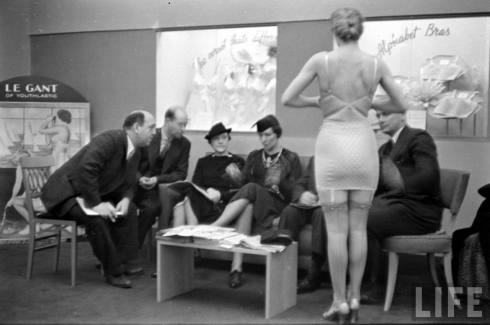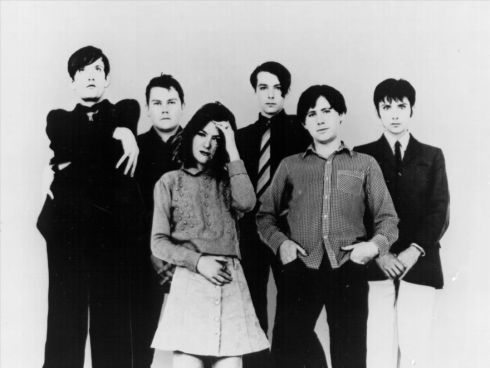
Underwear (Different Class, 1995)
Underwear (Peel Session, 1994)
Underwear (Black Sessions, 1995)
Underwear (Live film, Reading 1994)
Underwear (Live film, Glastonbury 1995)
Underwear (Live film, The White Room, 1995)
Underwear (Live film, Amsterdam, 1995)
Underwear (Live film, Eden Project 2002)
Underwear (Live film, Reading 2011)
Underwear at Pulpwiki
“It is a horrible feeling. It makes you feel something less than human, like you can get carried away with this need… Your body’s saying, ‘Go on, do it. Offload that! Just get it done’…. The only similar thing is having a kebab. Somehow, when you’re really pissed, you get into that perverse frame of mind where you think, ‘Right, I’m hammered. I’m a mess. How can I take it further?’ And the answer is: ‘I’ll have a kebab.’ Somehow it rounds the experience off and you get some kind of perverse satisfaction from the knowledge that you were low, and yet you thought of a way of taking it lower. And there is something you can learn from that – not necessarily something that you’ll want etched on your gravestone, but it’s good to acknowledge that sometimes you get those unwise impulses. Somehow, from taking it that far, you get something out of it.”
Interview in The Face, 1 June 1995
“It’s like situations where you’ll maybe get back to someone’s house and it seeems the coffee has been had and sex action could take place, and maybe you’ve even got down to the underpants but then you think maybe this isn’t a good idea because you’ve changed your mind or gone off the person or sobered up. it’s about being past the point of no return but not wanting to do anything. It’s a bit personal.”
Interview in NME, 23rd September 1995
“This is about going home with someone, which seems like a good thing to do when you decide to do it. But when you get to the actual nitty-gritty, when you are actually standing in your underwear you think I can’t good through with this, but how do you get out of that situation?”
Introducing Underwear at Aston Villa Leisure Centre in October 1994
“If fashion is your trade / then when you’re naked / I guess you must be unemployed”
We re-join Pulp on the 10th of July 1994, at the unappealingly-named ‘Dour Festival’ in Belgium for the inception of what would turn out to be their high-watermark imperial phase; the writing, recording, releasing and world-touring around ‘Different Class’. The group already had a following, of course, and would continue to pick up fans up until the present day, but for the general public these are the years where the group were visible on a national (and sometimes international) stage . The intended audience for this music isn’t a select group any more, it’s moreorless everyone, and the flavour of this is present in almost every note of the album. It’s the first sight of the Pulp known to the general public and spotlights Jarvis Cocker’s transition from a “freak” to a public figure to be wheeled out for quiz shows, award ceremonies and (thankfully occasional) adverts.
For a bunch of self-defined outsiders, this alone is an odd move, but even stranger is the fact that the band seemed to somehow see this coming, even as early as the summer of ’94. Their sound, while remaining firmly their own, is having some rough edges smoothed off, and songs are starting to aim for more general themes rather than the purely personal – not in a Carter USM “this is our one about the racism in the Army” way, but as having an experience ready to present to the public as a whole, and with the expectation that they would actually listen.
The theme of ‘Underwear’ is “sexual consent” – though it’s hardly the standard take on the topic. Art that addresses consent (understandably) tends to treat it with kid gloves, either addressing men with “you must get consent, no means no,” or women with “don’t do anything you’re uncomfortable with.” These are both excellent, reasonable lines to take when (as is usual) talk of ‘consent’ is used as a proxy for talk about rape and how it can be prevented. ‘Underwear’, on the other hand, is concerned only with consent without mention of threat or external coercion, and aims to understand instead of offering practical advice. It places you right there inside the making and unmaking of a decision.
In the early 90s popular culture seemed to be awash with a collection of second-hand self-actualization-course borrowings of Taoist sayings – “go with the flow” or as Oasis were soon to put it “roll with it.” The idea that your subconscious is better at running your life than your critical mind is quite a seductive one, with a fair amount of evidence on its side (so long as you don’t take “accept all change in society / politics as natural and don’t question anything” as a corollary.) Interaction with other people is always the confounding factor, however, and in a society where other people don’t necessarily have your best interests at heart, this sort of talk doesn’t work well as advice. For someone with a neurotic personality, deliberately dulled with alcohol, sudden sobriety can turn a trust in instinct into a crisis of self-belief. If you feel a reluctance, a moving away from people, is this a genuine response offered up by your subconscious, or is it a false signal created by the ebbing-away of self-confidence as the alcohol fades? If you’re thinking about whether to go with it then you’re already not going with it, but maybe you want to? Who can really say for sure?
The subject of ‘Underwear’ is stuck in this moment, and what’s worse she has to communicate it to someone she’s barely spoken to, someone she doesn’t even really know, someone she should be way beyond words with already. There’s a fun night behind them with drinking and dancing, she was lost in the moment, but now she suddenly isn’t – she’s semi-naked in a stranger’s bedroom, and he’s coming up the stairs. Communicating all of this with someone she’s barely spoken to in the cold, quiet light of their bedroom, when she’s supposed to be lost in the moment, can only amplify the strain. After all, this is one of the main reasons that people use alcohol – it stops you from thinking when you don’t want to think. But sooner or later everyone has to think. And nakedness has it’s own power too – all the dressing up at the start of the night has fallen away to be replaced with bare biological differences, perhaps even the revealing of hidden truths. It was the artifice which played the lead role, and now it’s left her alone with a stranger.
Clothes give us freedom to express ourselves, and at the same time they allow other people to make their own judgement of us. Clothes can emphasise or minimise gender, sexuality or eccentricity. Clothes can be used to attract, repel, shock, make statements about who you are. Paradoxically, then, shedding your clothes hides your individuality – it emphasises how similarly built you are to the other members of your gender and species, reducing us to “you’re a girl and he’s a boy” whether we want this or not.
‘Underwear’ is a Polaroid snapshot of this single moment, recounted as if it were a long-forgotten playground rhyme suddenly revealed to the narrator in a vision. Sentences are cut up into little interlocking chunks which slot together until halted by “just you…” There’s a nervous dread to the delivery, coupled with that negative euphoria we encountered in Razzmatazz and Lipgloss. At the end of each verse we return to the hook line – “I want to see you…”which runs counter to the rest of the lyric, detaching from this new narrative to return to the seediness of much of His ‘n’ Hers. It’s a strange, possibly jarring aside – why are we suddenly a voyeur here? Is he once again using empathy as a weapon, and if so, why? But it does at least serve as a reminder of what has changed since His ‘n’ Hers.
Behind Jarvis, the rest of the band have also made a fundamental shift. Underwear sounds for the world like an epic rock ballad, complete with power rock chords, a descending piano line motif and a string section (well, Russell) echoing the main melody. Aside from the influence of new producer Chris Thomas (we’ll talk more about him later) this can partly be attributed to the greater role being assumed by Mark Webber. While Mark would probably position himself more in the world of the experimental than traditional rock, the presence of two (or even three) guitarists in the group meant a move away from electronic music was natural. With two guitars in the mix the most obvious way to place them is rhythm and lead – and where you have lead, you have a guitar line providing the melody, not a keyboard. While we aren’t entirely finished with songs being written on a portasound or constructed from rehearsal room jams, these are quickly becoming a thing of the past, for better and for worse.
Listening to the version from their 1994 Peel session reveals many of the joins that make it work. The ambition is all still there, but the bite is all missing – the lack of all those little flourishes reveals the song as, yes, still very pretty underneath, but undressed like this it feels uncomfortably normal to listen to – the work of a good indie band on a very good day rather than a polished pop masterwork. Returning to the original reveals a multitude of expert touches – the repeated echoes of “just remember”, the way the reverb melds into the chorus – so many things going on at, but all fine-tuned and expensive-sounding. There’s even the addition of an instrumental verse to show off the production – really not a very Pulp thing to do prior to this.
I feel like I should be suspicious of Underwear – it’s essentially a re-tread of past glories, pumped up on steroids, but ultimately it just works, a fact that took even the band by surprise. Initially issued as the b-side to Common People, it proved a live favourite, and was soon given a prominent place on Different Class, later even being retconned as a double-A-side and included on the ‘Hits’ compilation in 2002, in the place of the then-purged ‘Mis-Shapes’. While it will never be one of my personal favourites, I have to respect the fact that it’s a song which seems to mean a great deal to many people, and for good reason. This, finally, is the Pulp the world knows.













